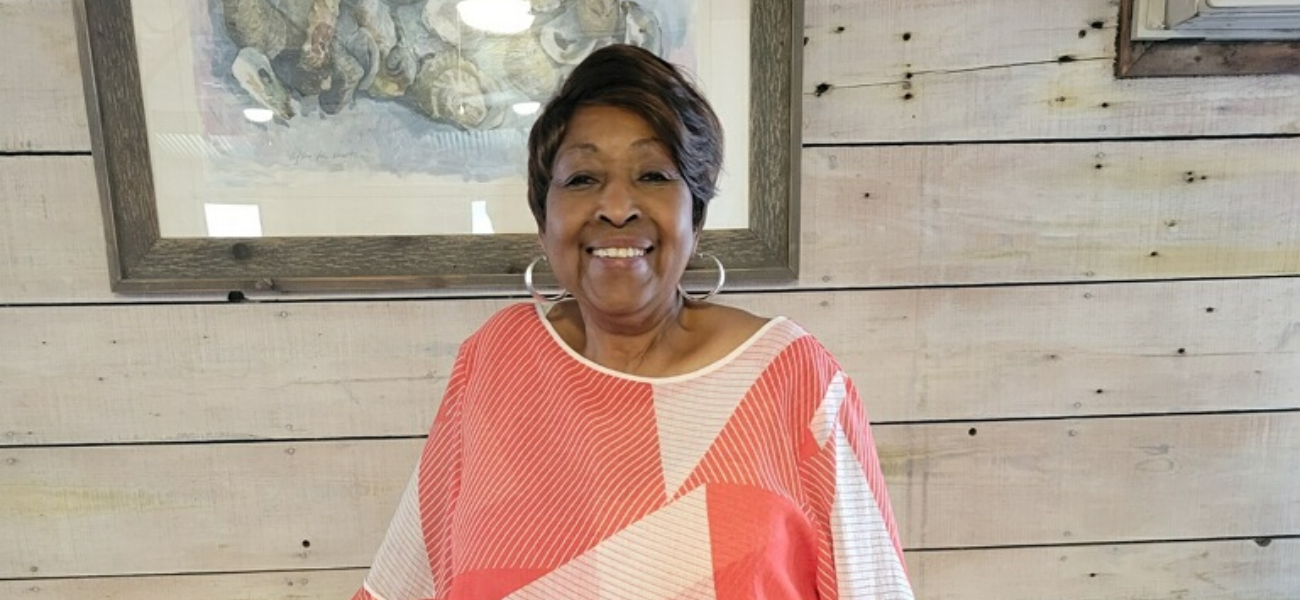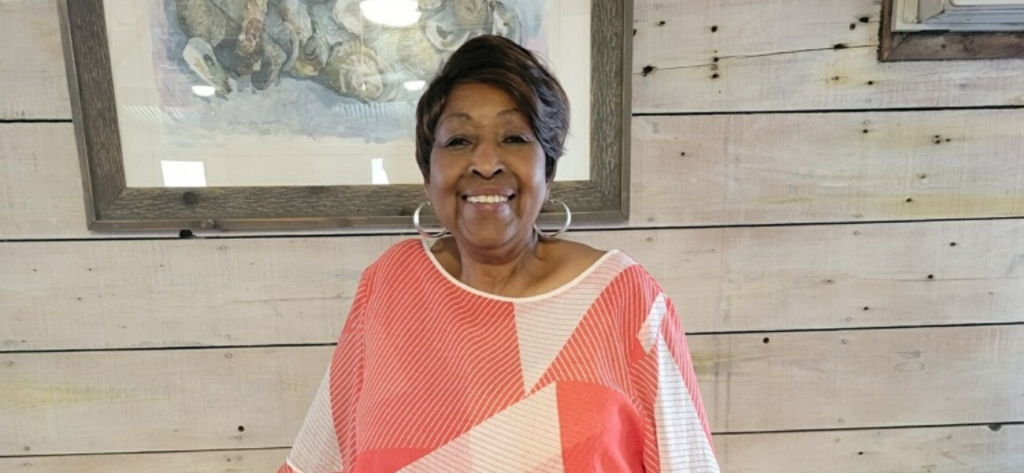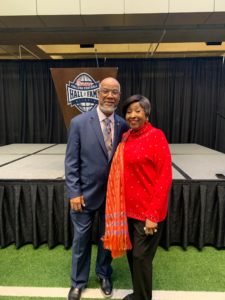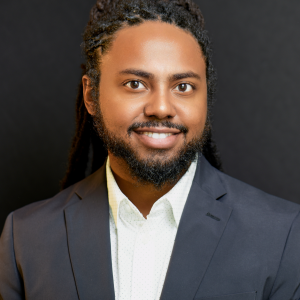Stay ahead of the curve as a political insider with deep policy analysis, daily briefings and policy-shaping tools.
Request a DemoEdna Jackson, Savannah’s first Black female mayor, on her public service career, turning 80, and what’s next

State Rep. Edna Jackson, a Savannah Democrat, having lunch at Tubby’s Tank House, April 8, 2023. (Credit: Issac Morgan)

SAVANNAH — When she’s not in the Statehouse pushing for more funding in the state budget for historically Black colleges and universities in Georgia and other legislative proposals, Edna Jackson is enjoying a southern meal at one of her favorite restaurants and traveling the world.
In fact, Jackson is taking another trip to West Africa following the legislative session that ended in March.
“I am leaving on the 21st [of April],” she told State Affairs while eating a crab cake sandwich at Tubby’s Tank House in Thunderbolt, near Savannah. “I am going to Ghana.”
A Savannah native, Jackson is no stranger to public service, serving as the first African American woman mayor of Savannah and on the City Council for some years before that. She is a Democrat representing House District 165 (Chatham County).
But her efforts to boost funding for HBCUs, such as Savannah State University and Albany State University, haven’t been an easy task. That was one of her motivating factors in seeking another term in the Georgia General Assembly in 2022, she said. And the fight isn’t over.
“I had unfinished business,” she said. “My other objective was Savannah State [University] because they [legislators] took $11 million out of the budget.
“I am going to fight until I win,” said Jackson, who early in her career worked as an administrator for Savannah State University. “And that’s what I do. So that’s why I am up there this time. If I get that done, I am done.”
Jackson is a two-time graduate of Savannah State University, earning bachelor’s and master’s degrees. Her son, Kevan Jackson, graduated from an HBCU as well — Tuskegee University, Jackson said. While serving as a member of the NAACP at the young age of 18, Jackson noted a time in the 1960s when she traveled from Tampa, Florida, to Washington D.C., fighting for civil rights.
State Affairs caught up with Jackson at one of her favorite seafood spots near Savannah to talk about her motivation for serving her constituents, her passion for HBCUs, and whether she’ll continue in public service after her term ends next year.
The conversation is edited for clarity, brevity and length.
Q. Tell us more about your efforts for funding HBCUs. Has it been a struggle?
A. So, I went up there [Georgia Statehouse] to make sure that they were not going to merge, that they were going to try to give us more money. Unfortunately, we didn’t get any more money. But by next year, we are going to get some money. So, you go up there and you build the relationships and I am on higher education as one of the main things. My question is why not give the money to one of the HBCUs?
Q. You said your term ends next year. Do you have plans to continue in public service?
A. “I am thinking of not running again. You know, I have been in this thing a long time. Everybody is saying they want me to run, but next year in September, I will be 80 years old. And it’s time. I have given a lot. I’ve enjoyed it. I have accomplished everything. And I really didn’t even look forward to accomplishing anything else — just helping people.

Q. What motivated you to run for reelection to the Georgia House in 2022?
A. The people, for one. And there was another young man that said he was going to run against me. He was in that five [candidates who were competing to represent District 165] originally. This time I ran because they asked me to run. And they wanted me to help get legislation through. Because I’d done that when I went up there the first time. I was able to get all of the Republicans to start talking.
Q. What are your plans after public service?
A. Travel. I have been to Ghana, Nigeria, China, three times; Israel. And most of the trips, there was a mission. I was one of the organizers of the World Trade Center board here. But that’s all I want to do; I just want to travel. People want me to write a book, but I will not write a book. People have offered to be a ghost writer. I don’t have time.
Q. Any favorite places or activities you enjoy in Savannah?
A. My biggest enjoyment is talking to young people. I like going to a lot of places, museums, and food places. I love this place — the House of Prayer. They have some in Florida, too. This is a church that was started many years ago by Bishop Grace in Savannah. They started in a big, old, barn-like area. And we would go over there at night because they played good music. They worshiped God. But they worshiped the bishop; they called him “daddy.” During the week, they have pig’s feet and beef stew and fried fish and soul food. And it’s good. It’s very good.
Q. You were the first African American woman elected as the mayor of Savannah. Describe how you felt after that milestone.
A. I never wanted to be an elected official. I was always pushed to do that from the time I was an alderman until I became the mayor. And then I went home. I lost my reelection because I wouldn’t do what some people wanted me to do because of my integrity.
Q. Tell me more about your transition from former mayor to currently serving in the Statehouse?
A. I moved up from being an alderman and they said I was ready to become the mayor. And I did. But you have to look at the total community. Because when I ran, I ran at large for alderman, which meant that I had to talk to everyone in the city lines. And when I got there, I was prepared.
I have good relationships with people. I don’t care whether you are Democrat or Republican. I am going to respect who you are but I may not go along with what you do. I was able to cross lines within the city and I was able to affect change when I became the mayor. I had an agenda of what we wanted to do and how we wanted to do it. And then I had the aldermen because you can’t do it by yourself. The aldermen that I worked with mainly were the same ones that won reelections. But we were always together in our decision-making.
Have any suggestions or tips on interviews or stories in Georgia? Contact Issac Morgan on Twitter @issacmorgan12 or at [email protected].
Twitter @STATEAFFAIRSGA
Facebook @STATEAFFAIRSUS
Instagram @STATEAFFAIRSGA
LinkedIn @STATEAFFAIRS
Professionals still face licensing delays amid state’s transition to online system
The Gist Georgia’s professionals and business owners are still struggling to obtain professional licenses in a timely manner. As the Secretary of State’s Office rolls out its new Georgia Online Application Licensing System to expedite the process, the efficiency of this new process is being put to the test. What’s Happening Thursday morning at the …
Controversy over AP African American Studies class grows
Rashad Brown has been teaching Advanced Placement African American Studies at Atlanta’s Maynard Jackson High School for three years. He’ll continue to do so — even though the state’s top education official removed it from the list of state-funded course offerings for the upcoming school year. While Brown prepares to start teaching his class on …
Students, teachers, lawmakers blast decision to end AP African American history classes
ATLANTA — A coalition of lawmakers, civil rights leaders, clergy, educators and students Wednesday called on the state’s education czar to rescind his decision to drop an advanced placement African American studies class from the state’s curriculum for the upcoming school year. “This decision is the latest attack in a long-running GOP assault on Georgia’s …
Kamala Harris’ presidential bid reinvigorates Georgia Democrats
Georgia Democrats have gained new momentum heading into the November election, propelled by President Joe Biden’s decision to bow out of his reelection bid and hand the reins to Vice President Kamala Harris. The historic decision, announced Sunday, is expected to prove pivotal in the national and state political arenas and breathe new life and …




